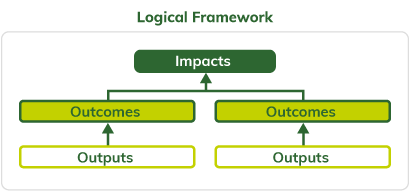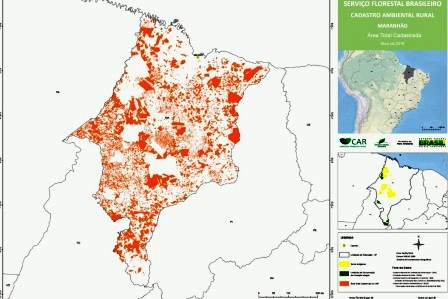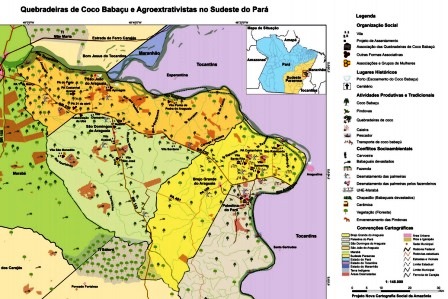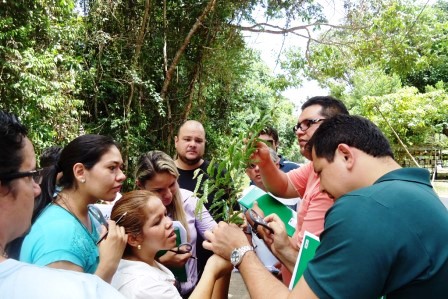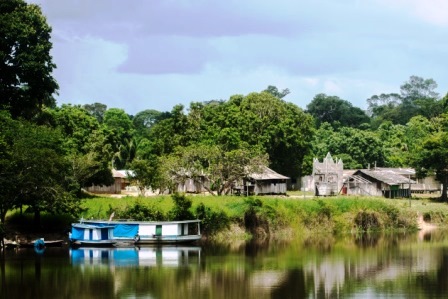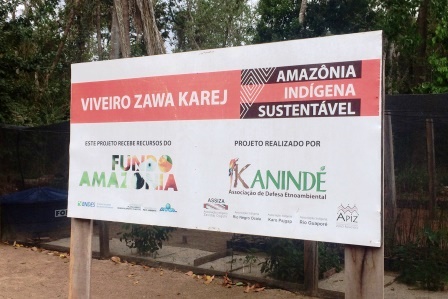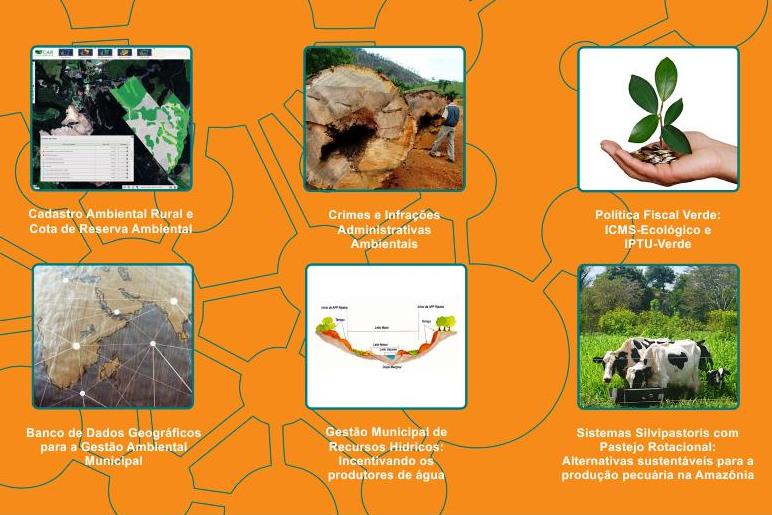ACTIVITIES CONDUCTED
The activities and deliverables made by the project can be grouped into six components, namely:
- Training focused on environmental management for municipalities that are part of the Amazon biome
The main activities carried out in this component were: (i) construction of the training modules, with structuring of the educational proposal, customization of the technological platform to be used, elaboration of the contents, identification of the topics of interest to the technicians of the municipal environmental agencies (OMMA) and the production of the didactic materials; and (ii) academic management, which involved the monitoring of the classes, the continuous training of tutors and other actions, such as telephone calls and sending messages to encourage participation by the target audience.
In all, 201 courses were offered at the end of the PQGA in 17 topics, with the five most frequent courses being: Municipal Environmental Licensing, Rural Environmental Registry (CAR), Municipal Environmental Management, Introduction to Geotechnology and Solid Waste Integrated Management Plan. 420 municipalities from the nine states of the Amazon Biome participated in this action, with the training of 7,706 people, 4,627 of which were public servants.
- Meetings with municipal legislatures
21 meetings were held in seven states of the Amazon, with the participation of 1,683 people, with 1,230 councilors and 453 advisors. The coordination with the entities representing the councilors were important for the dissemination of the meetings.
Based on the analysis of the information collected, educational lectures were prepared, the book "O Vereador e a Câmara Municipal [The Councilor and the City Council]" was edited and published, and a proposal for an amendment to the Organic Law of the Municipalities and a module in the course dedicated to the legislature was written. Meetings were held in two formats: “Regional Meetings", which promoted the effective participation of councilors and advisors on environmental issues relevant to municipalities and "State Meetings", with the participation of members of state agencies such as the Court of Auditors, State Secretariats of the Environment and Public Prosecutor’s Office.
- Technical and legal guidance to municipal governments
1,813 new legal opinions and 50 technical notes were prepared. The project registered 449 municipalities that accessed the PQGA portal. 10,266 document downloads were made, considering both the new materials prepared by the PQGA and the IBAM publication base.
The technical notes that aroused greater public interest were on the following topics: “Municipal Environmental Policy", "Specific Instruments, Environmental Control and Promotion of Sustainable Practices and Economic Incentives", representing around 75% of total downloads.
The project created learning communities in order to promote the integration of managers and technical teams of the various municipal environmental agencies of the Amazon Biome. It sought to stimulate the approximation of this public and encourage the exchange of materials, knowledge and solutions in the environmental area, through interaction mechanisms in the digital environment.
The Federal Communities (CFs) brought together members of 306 municipalities and a total of 520 participants from the Executive. The Thematic Communities (TCs), meanwhile, gathered 231 participants and were conceived to provide means of continued training for those who have completed PQGA courses, encouraging the development and technical deepening of the contents.
- Award for good municipal practices
The project organized the award for good environmental practices in five categories: (i) territorial and land planning; (ii) environmental monitoring, control and recovery; (iii) sustainable production and incentives for conservation; (iv) socioenvironmental governance and (v) environmental education. For each category, two projects were awarded, one from the municipal governments and the other from civil society organizations. In total, 140 initiatives were awarded from 58 different municipalities, and of these proposals 61 were authorized by the selection committee.
In addition to the ten award-winning practices, a certificate of recognition of merit was granted to the 51 qualified practices, as provided for in the regulations. Below are the award-winning practices.
|
Category
|
Municipal government
|
Civil society organization
|
|
Territorial and Land Planning
|
Regularization and environmental adaptation in rural properties related to the rural environmental register
City Hall of Cotriguaçu
|
Amazon dialogue forum: urgent land regularization!
International Institute of Education of Brazil (IEB)
|
|
Environmental monitoring, control and recovery
|
Participatory process for environmental recovery of springs contributing to the municipal supply system
City Hall of Paranaíta
|
Participatory monitoring program in the conservation units of the forest assistance program (PPDUC)
Sustainable Amazon Foundation (FAS)
|
|
Sustainable production and incentives for conservation
|
Conservation project of the waters of Brasil Novo/Pará
City Hall of Brasil Novo
|
Implementation of the wood production chain in RESEX Ituxi
Tropical Forest Institute (IFT)
|
|
Socioenvironmental Governance
|
Sinop without fire - Paranka project to prevent and combat fires
City Hall of Sinop
|
Socioenvironmental governance in Marajó
Tropical Forest Institute (IFT)
|
|
Environmental education
|
Caeteuara Green Room
Municipal Secretariat of the Environment of the City of Bragança
|
Forest formation
International Institute of Education of Brazil (IEB)
|
- Decentralization of environmental management
Thirteen meetings were held between state and municipal governments, with the participation of 280 people. The PQGA identified that the greatest obstacle to the decentralization of environmental management is the limited capacity of most municipalities in the region to effectively exercise their functions in environmental control. Considering this restriction, we sought to expand the dialogue between states and municipalities on the subject.


